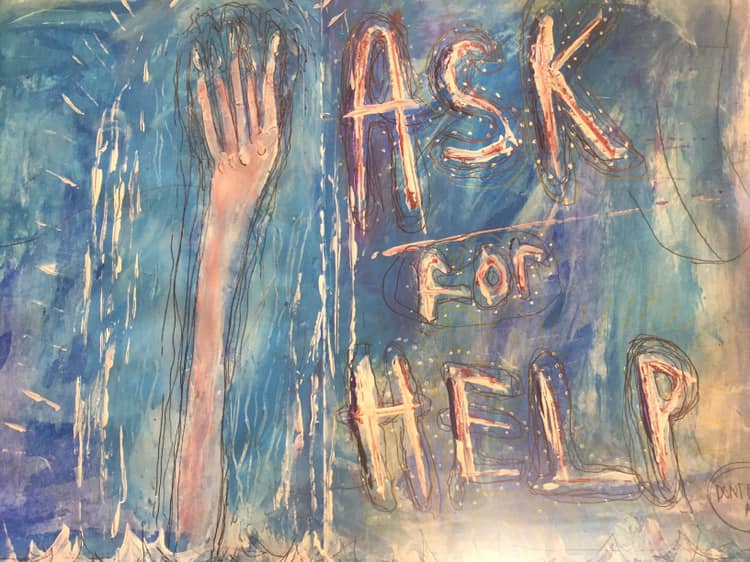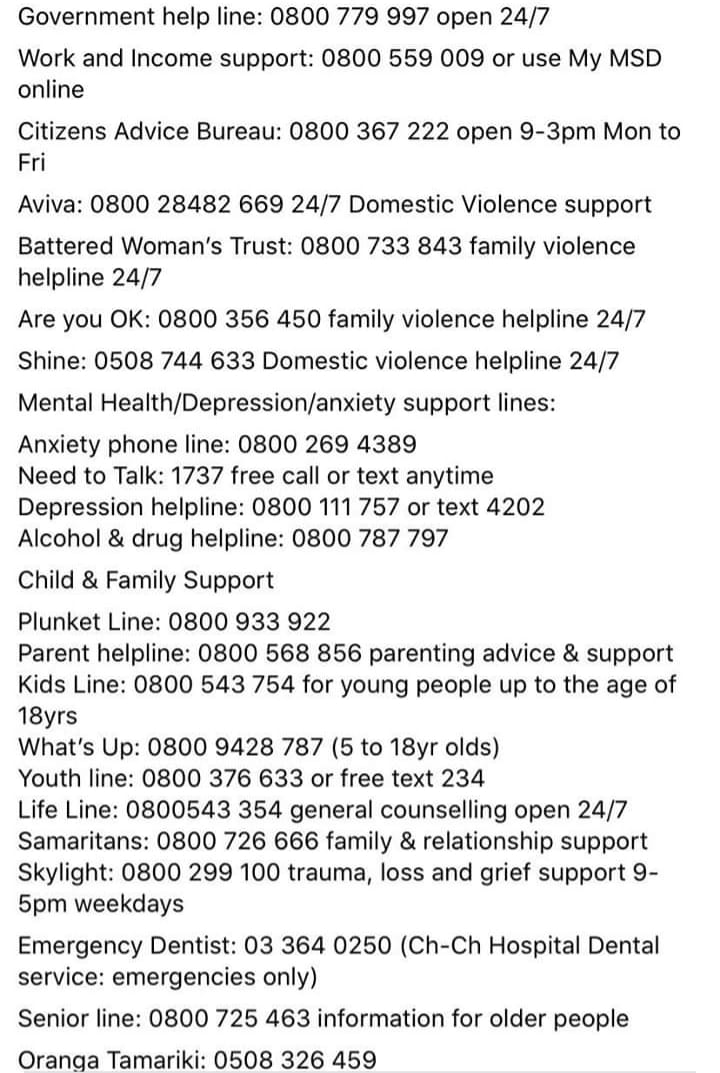The other day, I listened in dismay to a supermarket worker talk about the hideous behaviour of some people in the shop. The day before, I was waiting in a patient and well distanced line at the pharmacy, when a white man came into the queue and pushed in and started swearing and generally being belligerent.
I felt scared. I felt sorrow for the workers and others who are doing the best they can in really difficult and scary conditions and did not deserve that treatment. And I felt aghast for my fellow pharmacy queuers who felt intimidated and upset.
And now I am feeling for the angry people. That's not some spiritual bypassy nonsense. That's after a lot of reflection on my distress and leaning into the principles of Somatic Experiencing and the Polyvagal theory.
I will attempt my simple understanding of the way it works... here goes...
Our nervous systems have developed to respond to a threat in several ways. These all happen unconsciously.
Firstly, we try to think/negotiate/create our way out of it (this is the ventral/front or "newest" part of our brain).
If that doesn't work, or we have not had good experience using this, we go to the next level (the sympathetic nervous system or more ancient part of our brain.) This part of us is ready to respond to the sabre-toothed tiger. It's the fight and flight part of the brain. If you think you can take the threat on, you will fight and if you think you can outrun it, you will flight (or run).
If that doesn't work, or again, you have lived through experiences that have taught you that you don't have a lot of skill with threat, or, in the moment you are overwhelmed, you use the most ancient part of your brain the dorsal/hind-brain at the back of your skull. This is where you freeze or go into shut down.
I hope you are still with me.
Back to the shouty man in the queue. People are scared. This virus thing is out of our lived experience. (I could go off on a tangent about the lost art of story and how if we had kept alive the stories of the Spanish flu we might have navigated this differently but, I digress.)
We have been raised to think we can be the masters of the planet. We have learned to take what we want, when we want it, in the way that suits us. We don't have experience of our own puny place in the real scheme of things except for bushfires and tsunami and earthquake and something in our psyche convinces us that was a one off and we move on with the relentless entitlement that seems endemic in our culture.
At the moment, we are faced with this unfamiliar threat. It’s a threat that we can't see, it's minute and yet powerful, that is taking people out despite their status, power or wealth; aka all the things we have been taught to believe, matter.
We are all having to do things we don't want to do, live a way we don't want to live. We are having to curtail, cut off, submit. We don't like it. It's a threat. And that threat makes us respond. Remember this is not conscious.
Some of us are to the threat responding from our ventral system. We are connecting, being creative and community minded, building new ways to stay safe and strong. This doesn't mean we are not scared or feel the loss. We just respond by learning, connecting and being thoughtful and creative. To respond like this we have had to have lived pretty safe, well supported lives, be well resourced, have done some inner work to resolve trauma etc.
Some of us are responding from the “sympathetic” part of our systems. We are wanting to run and we can't. In Aotearoa NZ right now, because lockdown for a month, this means just that, no hanging with whanau, sauntering and jaunts to the beach or the bach or the fishing trip.
We are reacting from the fight part of the sympathetic response. In many cases this is a well-worn path honed by finding relief in intimidation and aggression; if you roar loud enough most things will run away.
Sometimes the fight response is heightened as a result of our own trauma and learned behaviour. And, right now, many people who otherwise wouldn’t, are acting from this fight response through stress and complete overwhelm.
We reach this place of being driven anger in an attempt to get the threat out of our faces.
These are the people who are angry in the supermarket and in the pharmacy queue. They are also the usually mild mannered person who snapped at us, the mother with her kids on lockdown losing her cool, the father crying in the car before he comes inside.
Does it excuse anger and intimidation? No.
But knowing there are people out there who are likely to be on a short fuse is important.
How do we manage this? We are wise to pay acute attention to our own feelings, not deny or avoid. We can try to be self aware, self reflective. We can try to build safe connection that will allow us to talk things out. This will often help us move into the frontal part of our brain, bring it back on line.
We can run or do exercise to release some of the pent-up fight/flight response we are all feeling. We can shout into a pillow. We can rip up paper (not toilet paper coz that's gold apparently - an attempt at humour). We can dig the garden. Movement will help us mitigate that flight/fight response. All things we can feasibly do in lockdown.
We have a responsibility for taking care of ourselves. That means navigating things with care. Trying to pay attention to how we are feeling. Asking for help. Taking breaks. Talking to people. Being kind to ourselves. Noticing something that is growing, like a pot-plant, or changing, like clouds.
None of which is encouraged by modern western culture (as you will know if you have been following my work for any time at all!) #smashthepatriarchy.
There will be many people who are unable to do this moderating or mitigating. Who are angry and lashing out. If you are one of those people or stuck in quarantine with one of those people, please contact agencies listed below for support. You deserve to be safe.
As for the third response from the dorsal part of our brain? That's shut-down. That's when we can't think, or feel. When we curl up. And sweet human, we need you with your heart light on to make a way in the darkness. If you find yourself in shutdown, please rest. Please ask for help. Please be gentle and please return. Many people use alcohol and substances to maintain this state and it's going to be harder to isolate and continue with this, again if you can please get help.
Not everyone has the resources to cope during this time. Not everyone can just get through. Not everyone has the capacity.
So, dear one. When we tend to ourselves kindly and with understanding and generosity we are more likely to be able to navigate our way back to the ventral part of our brain, think cogently, understand, learn, be creative and connect with others.
When we drive ourselves beyond our capacity we are less able to hold that place of thought and conscious decision making. We respond to threat in ways we are not proud of. And some of us are doing the best we can and it's not enough for us to cope.
So, what am I trying to encourage you to do? If you have the resources; be kind to yourself. If you don't please ask for help.


 RSS Feed
RSS Feed